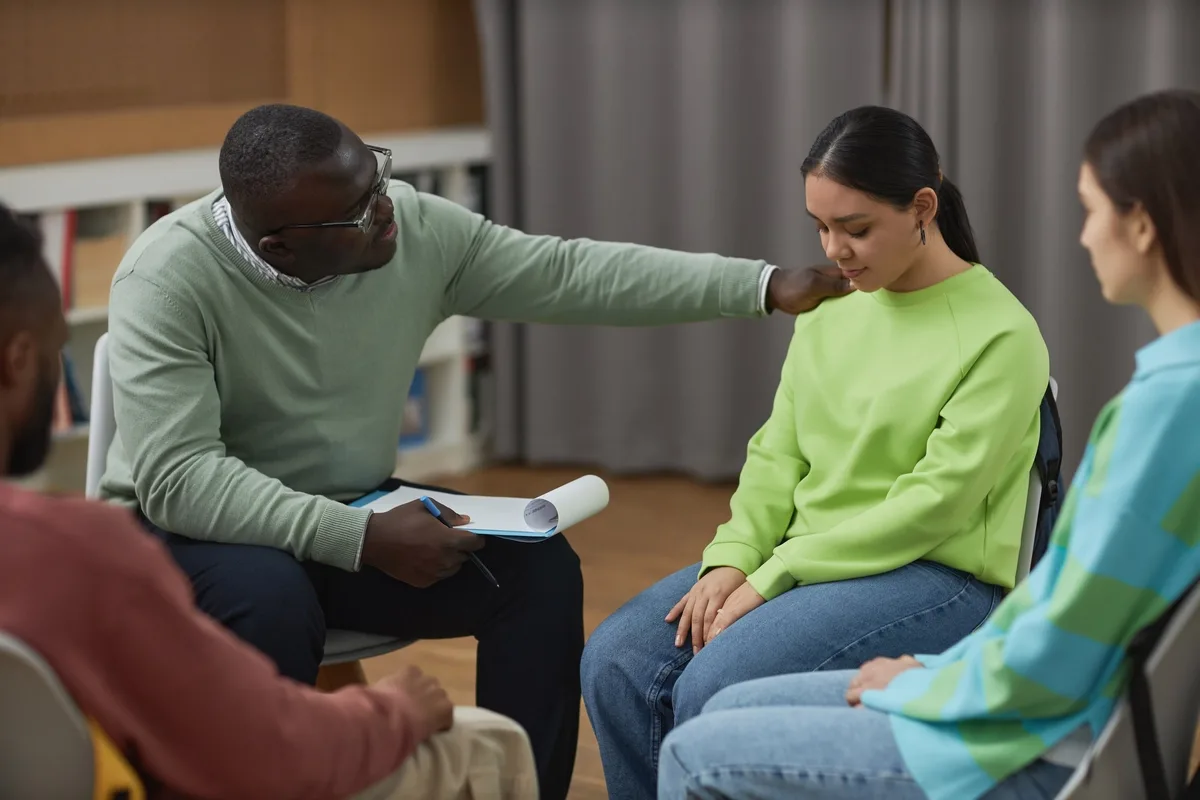24/7 Helpline:
(866) 899-111424/7 Helpline:
(866) 899-1114
Learn more about Group Therapy centers in West Hollywood
Group Therapy in Other Cities
Other Categories in West Hollywood

Other Insurance Options

Magellan

Sutter

Humana

WellCare Health Plans

CareFirst

UnitedHealth Group

Choice Care Network

Private insurance

MHNNet Behavioral Health

UMR

Multiplan

Ambetter

Carleon

State Farm

Lucent

Health Choice

BHS | Behavioral Health Systems
Beacon

GEHA

Magellan Health

Insight Choices
Insight Choices, in West Hollywood, California, provides outpatient mental and behavioral health car...

CAST Centers
CAST Centers offers PHP and IOP treatment for those struggling with substance abuse and mental healt...







































Twin Town Treatment Centers
Twin Town Treatment Centers - Santa Monica Boulevard offers outpatient treatment for individuals wit...

WHRC – West Hollywood Recovery Center
WHRC – West Hollywood Recovery Center is a non-profit rehab located in West Hollywood, California. W...

Breathe Life Healing Centers
Breathe is dedicated to outstanding trauma-informed clinical care to each client and their family. B...

The Bill Coffey House Sober Living
The Bill Coffey House Sober Living is a private rehab located in West Hollywood, California. The Bil...



